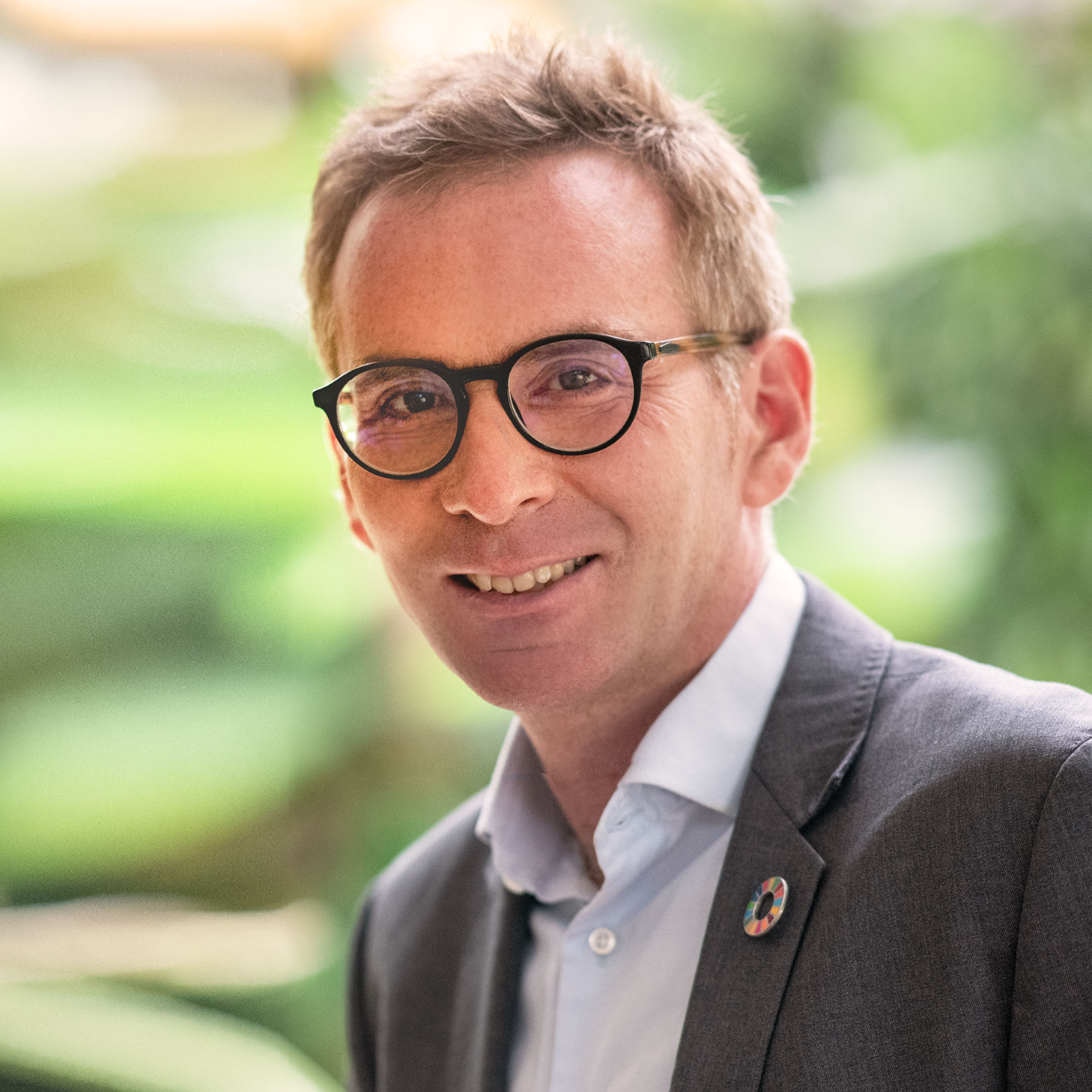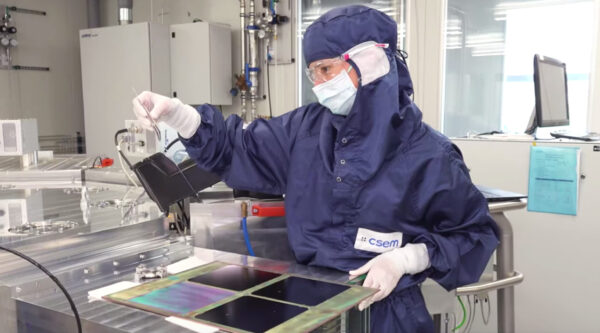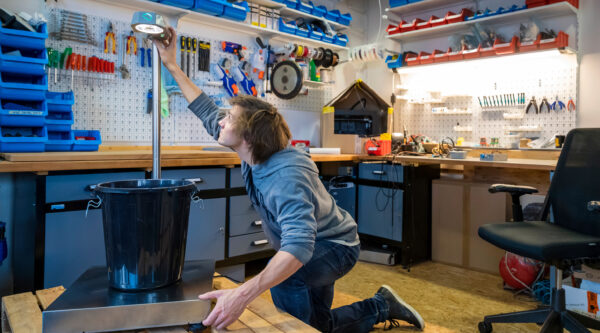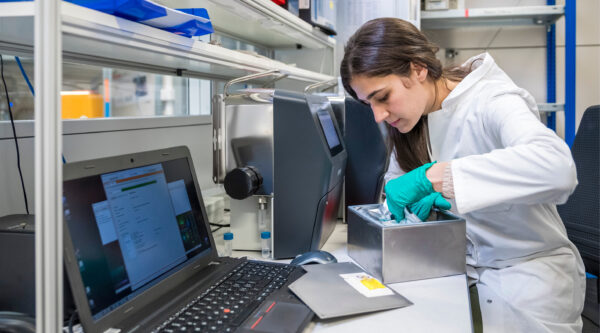Themed files
Sustainability and innovation
Innovative and committed to sustainability
With its Sustainable Development Strategy 2030, the Federal Council shows how it intends to implement the UN Sustainable Development Goals (SGDs) over the next ten years. All Member States are committed to achieving these 17 Global Goals for Sustainable Development by 2030, leaving no one behind.
The federal government intends to implement its strategy, which it put to consultation until 18 February 2021, in all policy areas. A development that takes social, economic and ecological aspects into account needs technical and social innovation. Implementing such solutions is, among other things, an important prerequisite for reducing the consumption of resources, which by doing Switzerland aims to achieve its climate targets. Innosuisse has been promoting these future-oriented innovations for a long time, thereby making an important contribution to the federal government’s sustainability strategy, and will further strengthen its commitment in the future.
Innosuisse has been promoting forward-looking innovations for a long time.
Aligning innovation activities with the federal government’s sustainability strategy will open up great opportunities for Switzerland to gain a decisive competitive advantage on the international market with forward-looking solutions. “Switzerland is very well positioned in this respect,” says Renat Heuberger, a member of the Innovation Council at Innosuisse. “Our researchers and our entrepreneurs are highly innovative.”
Switzerland is well on the way to achieving some of the goals of the global 2030 Agenda. For example, it has a high-quality education system and good healthcare. Additional efforts are needed in other areas, and the Federal Council has declared these to be priority areas. One of these is “Climate, energy, and biodiversity”.
Developing solutions for Switzerland’s energy of the future
This area has traditionally been of great importance to Innosuisse. For example, the Swiss Competence Centres for Energy Research (SCCERs) have “developed or significantly advanced solutions to relevant technical, societal and political issues related to the Energy Strategy 2050” from 2013 to 2020, says Adriano Nasciuti, President of the Steering Committee and a member of the Innovation Council of Innosuisse in an interview. The SCCERs have a lasting impact. Most of the parties involved are continuing their activities in order to develop solutions for the energy of the future for Switzerland beyond 2020.
Systemic innovation should help bring about a more sustainable and resilient world.
Innosuisse’s new Flagship Initiative is also dedicated to this topic. Funding will be provided to systemic innovations that will help bring about a more sustainable and resilient world, thereby also contributing to meeting the Sustainable Development Goals under the UN 2030 Agenda.
Start-ups must pursue a sustainable development strategy
The sustainability of innovation projects has been one of Innosuisse’s explicit evaluation criteria for some time now when it assesses submitted innovation projects. Innosuisse also attaches great importance to sustainability in its support for start-ups. Dominique Gruhl-Bégin, Head of the Start-ups and Next-Generation Innovators Division: “Part of any coaching is developing a strategy to take on environmental, social and economic responsibilities. Innosuisse encourages start-ups to provide answers to key questions.” In addition, each company must demonstrate that it is pursuing a sustainable development strategy.
The Innovation Switzerland impulse programme also supports sustainable strategies. Among other things, it aims to ensure the long-term competitiveness of small and medium-sized enterprises in the face of the current Covid-19 pandemic. For Gruhl-Bégin, it is clear that many companies will only survive if they completely reinvent themselves and, for example, target new markets or create new needs. This could be achieved, among other things, with a convincing sustainability strategy. Studies by, for example, Oxford University or Bank of America show that such a strategy boosts companies’ profitability. “I firmly believe a good sustainability strategy also leads to higher profitability for start-ups and I want to advocate for this to be evaluated for Swiss start-ups.”
Interview with Renat Heuberger

“The federal government’s sustainability strategy benefits from Switzerland being a centre of innovation.”
Renat Heuberger
is a member of the Innovation Council at Innosuisse and a member of the Flagship Initiative’s expert panel. He is CEO and co-founder of South Pole, a company specialising in sustainability solutions.
How important is innovation for the federal government’s Sustainable Development Strategy 2030?
Switzerland is home to excellent universities and has the huge potential of companies that can generate a great variety of innovative ideas all over the country. The fact that sustainability is now a key priority for the federal government is very fortuitous for our country as Switzerland can score points when it comes to topics such as energy efficiency or sustainable construction. The federal government’s sustainability strategy therefore benefits from Switzerland being a centre of innovation. Both of these together will ultimately create jobs and benefit the Swiss economy.
How can innovation contribute to global sustainability?
First, innovation needs to meet the right policy framework. So in my opinion CO2 should have a price, for example. Worldwide, CHF 400 billion in subsidies is still being pumped into fossil energies. This is outrageous. But Switzerland is also getting in on the act, for example by exempting aviation fuel from taxes. Second, innovation must not get bogged down in technology; entrepreneurship must be promoted, as Innosuisse is doing at various levels. And finally, it takes courage to change. Anyone planning a new city district, for example, must have the courage to use the latest technology, even if it has not yet been tried and tested many times over.
What makes innovation sustainable?
Innosuisse does not promote innovation that runs counter to the federal government’s sustainability strategy. For example, innovation that leads to a waste of resources would have little chance of being supported. That is why, when assessing applications, we take an in-depth look at what an innovation does in the context of sustainability. A recent project involved integrating cables for the smart home directly into the timber construction. It was highly interesting in itself. But what do you do with the timber that has heavy metal built into it if the house is ever demolished?
Sustainability is a common thread running through all funding instruments
How does sustainability factor into the assessment of applications?
Sustainability is a common thread running through all funding instruments. But we do not work on a points-system basis. Innosuisse relies on the vast experience of mixed teams with experts from the academic and entrepreneurial sectors. These jointly assess whether a project promotes sustainability or is detrimental to it. And if it makes a clear contribution to sustainability, it certainly has greater chances than a comparable one with no contribution to sustainability.
How can Innosuisse align its innovation activities even more closely with sustainability goals?
Innosuisse is already doing a lot. At the same time, there is always room for improvement, and this is currently being discussed at great length in our committees. Innosuisse does not normally prescribe the topics for the research landscape, which is the correct thing to do in principle. But it is of course interesting to set targets in certain areas, as is currently happening with flagships. We are working on finding the optimal balance.
What are your hopes for the Flagship Initiative in terms of sustainability?
The first novelty is that Innosuisse is setting key directions, for example in the areas of “supply chains” and “decarbonisation”, where sustainability plays an important role. The second novelty is that systemic innovation and the transdisciplinary aspect are playing a greater role. Problems are viewed holistically and projects promoted in a focused way if they aim not only for a selective improvement but also for a sustainable change in the system as a whole. For these two reasons, I expect the Flagship Initiative to make relevant contributions to sustainability.





